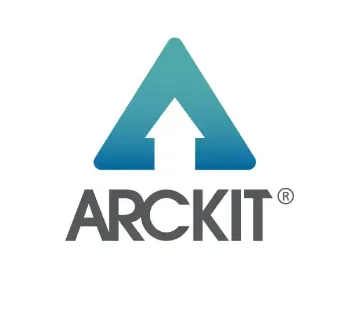From the same category
Soldering 9 Piece Kit
TSM 845318
€84.95
Duratool Electronics Tool 25 Piece Kit
DUR D00029
Ideal for technicians, a comprehensive electronics toolkit supplied within a handy zipped tool bag - external dimensions: 340 x 210 x 50mm.
Kit Contents:20W/130W Soldering iron Desoldering pump Multimeter 5" Long nose pliers 5" Side cutters Slotted precision screwdriver: 2.5 x 75mm Phillips precision screwdriver: PH00 x 75mm Slotted screwdrivers: 4 x 75, 5 x 75, 6 x 125mm Phillips screwdrivers: PH0 x 75, PH1 x 75, PH2 x 125mm Mains tester screwdriver Wire stripper/cutter 8pc Hex key set: 1.5, 2, 2.5, 3, 4, 5, 5.5, 6mm IC extractor Tweezers
Kit Contents:
€58.95
Soldering Iron Starter Kit
KI 26104
Great value starter soldering iron kit. Everything you need to start soldering in one handy pack, including a 30W mains powered soldering iron.
Contents:1 x 30W Soldering iron. 1 x Safety stand. 1 x Desoldering pump. Lead free solder.
Watch this video below for an explanation of some of the components in the kit (please note: not all items in the video are included in this kit, see contents list for exact contents).
Contents:
Watch this video below for an explanation of some of the components in the kit (please note: not all items in the video are included in this kit, see contents list for exact contents).
€19.95
Duratool Third-Hand Tool with Magnifying Glass
DUR D03285
€10.99
Kitronik LED Starter Kit
KI 2327
The LED kit contains red, green & yellow LEDs in 3mm, 5mm and 10mm round sizes as well as some Colour Changing and Tri colour LEDs plus some 5mm LED panel mounting holders. 105 parts are supplied in a multiple compartment storage box.
Features:Large selection of LEDs. 3mm, 5mm and 10mm Red LEDs. 3mm, 5mm and 10mm Green LEDs. 3mm, 5mm and 10mm Yellow LEDs. 5mm LED holders. Colour Changing LEDs. Tri colour 5mm diffused LEDs.
Contents:10 x 3mm Red LEDs. 10 x 5mm Red LEDs. 5 x 10mm Red LEDs. 10 x 3mm Green LEDs. 10 x 5mm Green LEDs. 5 x 10mm Green LEDs. 10 x 3mm Yellow LEDs. 10 x 5mm Yellow LEDs. 5 x 10mm Yellow LEDs. 10 x 5mm Panel Mount LED Clips. 10 x Colour Changing 5mm LEDs. 10 x Tri Colour 5mm LEDs. 1 x LED Kit box.
Kit Box Dimensions:Length: 174mm. Width: 140mm. Height: 32mm.
Compatible with:Raspberry Pi Pico Micro:Bit
Features:
Contents:
Kit Box Dimensions:
Compatible with:
€28.95
Duratool Desoldering Pump
DUR D03331
The Plastic Desoldering Pump with PTFE Nozzle features a durable blue plastic body designed for efficient and reliable solder removal. The PTFE (polytetrafluoroethylene) nozzle provides excellent heat resistance and smooth operation, making it ideal for precision desoldering tasks.
The pump is easy to use, with a comfortable grip and a powerful suction mechanism to effectively remove molten solder from circuit boards and electronic components. This essential tool is perfect for hobbyists, technicians, and professionals who require a dependable solution for desoldering needs.
The pump is easy to use, with a comfortable grip and a powerful suction mechanism to effectively remove molten solder from circuit boards and electronic components. This essential tool is perfect for hobbyists, technicians, and professionals who require a dependable solution for desoldering needs.
€2.95
Kitronik Jumper Wires 20cm Male/Female Pack of 40
KI 4128-40
These are 20cm long jumpers with male connectors on one end and female on the other. Use these to jumper from any male or female header on any board. Multiple jumpers can be installed next to one another on a 0.1" header.
Male to Female connectors Pack of 40 x M/F Jumpers (four of each colour) Length: 20cm (approx)
€3.95
Kitronik Quartz Clock Movement
KI 2801
These high precision Quartz Clock Mechanisms are great if you want to make your own clock or for replacing faulty clock mechanisms and come with all required fixing hardware and hour, minute and second hands. They are accurate to within 30 seconds per month and run from one AA Battery which lasts over a year. The time is easily set or adjusted with the dial on the back of the unit.
Popular uses include recycling old CDs and laser cutting custom designs from Perspex or plywood to make into clocks, but if you're after a more complete kit you can try our clock making kit, or assemble your own kit from our range of accessories.
Features:Quality quartz clock movement. Includes hands and fixings. Energy-efficient. Accurate timekeeping.
Contents:1 x Quartz clock mechanism. 1 x Second hand. 1 x Minute hand. 1 x Hour hand. 1 x Washer. 1 x Fixing nut.
Dimensions:Width: 54mm Height: 54mm Depth: 14mm
Popular uses include recycling old CDs and laser cutting custom designs from Perspex or plywood to make into clocks, but if you're after a more complete kit you can try our clock making kit, or assemble your own kit from our range of accessories.
Features:
Contents:
Dimensions:
€2.95
Kitronik Jumper Wires 20cm Male/Male Pack of 40
KI 4110-40
These are 20cm long jumpers with male connectors on both ends. Use these to jumper from any female header on any board, to any other female header. Multiple jumpers can be installed next to one another on a 0.1" header.
Male to Male connectors 40 x M/M Jumpers (four of each colour) Length: 20cm (approx)
€3.95
Kitronik Timed Night Light Project Kit
KI 2139
The colour changing LED on this kit turns on when it goes dark and stays on for a period of time. This makes a good night light and because the LED is only on for a small amount of time the batteries last much longer than a light that is on all night.
There is an on board trimmer to set the light level at which the LED turns on and another trimmer to set how long the LED stays on for. The maximum duration is about 30 minutes. When set to 15 minutes and activated once a night the batteries will last two months.
Features:Adjustable light level sensor. Adjustable length of light time.
Contents:2 x 10K Resistor. 2 x 1M Resistor. 1 x PCB trimmer 220K POT. 1 x PCB trimmer 10M POT. 1 x 47R Resistor. 1 x Miniature LDR. 1 x Capacitor, Electrolytic, 16V, 470uF. 4 x 2N7000 N Chanel FET. 1 x Colour Changing 5mm Diffused LED - 750mCd. 1 x PP3 Battery Clip Lead (Heavy Duty). 1 x 3xAA Battery Cage with Clip. 1 x Timed Night Light Kit PCB.
Dimensions:PCB Length: 53mm. PCB Width: 41mm.
Requires:3 x AA Batteries. Soldering Iron. Solder. Wire Cutters.
There is an on board trimmer to set the light level at which the LED turns on and another trimmer to set how long the LED stays on for. The maximum duration is about 30 minutes. When set to 15 minutes and activated once a night the batteries will last two months.
Features:
Contents:
Dimensions:
Requires:
€6.35















































































































